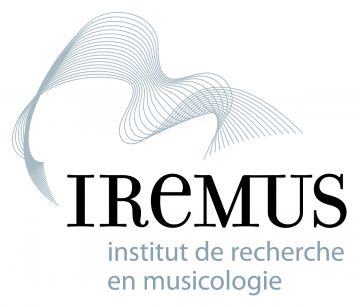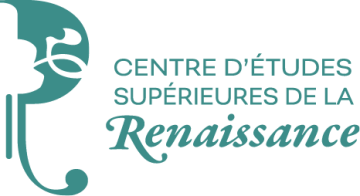The AcadéC project is the first comprehensive study to be devoted to the music academies in eighteenth-century France, the societies that gave rise to the first public concerts. It aims to give them a higher profile and shed light on their decisive role in the intellectual and artistic life of the Ancien Régime.
Following on from Daniel Roche's pioneering work on academies (Le Siècle des Lumières en province, 1978), AcadéC encourages multidisciplinary reflection on artistic societies. As such, it complements the ACA-RES research programmes (Les Académies d'art et leurs réseaux dans la France préindustrielle) and, in the field of musicology, Muséfrem (Musiciens d'Église en France à l'époque moderne) and Dezède (Archives et chronologies des spectacles), which document musical life in the provinces.
Music Academies or Concerts
The first ‘Music Academies’ or ‘Concerts’ appeared in the 1710s, and developed considerably between 1720 and 1750. Their rapid spread throughout France's urban network was part of the cultural dynamic of the French Enlightenment, and represented a major phenomenon in musical life - the first social concerts. Characterised at the outset as ‘academies’ in their own right, and thus part of the general movement of learned societies in the seventeenth and eighteenth centuries, the academies of music quickly acquired official status, and adopted a motto, a seal and regulations.
Hybrid institutions that resembled learned societies and public performance enterprises, the Academies of Music or Concerts remain little known despite the support and recognition they received from urban and/or monarchical authorities. This is a new field of study for the Centre de musique baroque de Versailles, focusing on original creative settings, a singular repertoire and a heritage yet to be discovered.
By carrying out a survey across the whole of France, AcadéC has not only made it possible to define a rich map of some sixty towns and cities, revealing forgotten academies, but also, more broadly, to document the life of these institutions. The variety of collections explored was a key feature of the project: archives produced by the academies themselves (musical collections, management and accounting registers, etc.), as well as collections from urban and monarchical institutions (municipal deliberations, tax and police sources, urban chronicles, etc.). Data processing in the interoperable database currently being set up aims to facilitate access to and exploration of this documentation beyond the case studies. In this way, the AcadéC project is making visible the formation, in the provinces, of the first form of concert institution, which inspired the creation of the Concert spirituel in Paris, the Concerts d'amateurs at the end of the 18th century and the philharmonic societies of the 19th century, which proliferated throughout France.
By organising a concert a week in at least sixty towns in France and the northern provinces, the ‘Académies de musique’ or ‘Concerts’ played a major role in the life of the city through their involvement in intellectual and artistic networks, their relations with local and central authorities, and their role as essential centres for the production, performance and dissemination of the French musical repertoire. By asserting its continuity with the artistic centres of the late reign of Louis XIV, while at the same time taking part in wider European academic networks, French musical academism brought about an unprecedented upheaval in the cultural landscape of Ancien Régime France. The movement, which also saw the advent of the first public concerts, brought about an unprecedented transformation of spaces, audiences and repertoires.
Although heir to the artistic centres of the late reign of Louis XIV, musical academism created a rupture in the public arena. The quest for an academic ideal based on knowledge and aesthetic experience led to a questioning of the social hierarchies that were usually accepted. The main consequence of this unprecedented upheaval in the cultural landscape of Ancien Régime France was the advent of the first public concerts, which was accompanied by a profound transformation of spaces, audiences and repertoires. More broadly, this movement was part of the development of European academic networks at the time of the Enlightenment.
Three research objectives
A list of institutions and corpus of material
ACADEC’s first objective is to produce a global mapping of the Académies de Concert in existence between 1710 and 1770, with a listing of their period of activity, special features, interconnections and players involved. This means creating and organising a very diverse corpus of material (comprising official texts, administrative archives, collections of music & musical treatises), rarely featured or catalogued in the various institutions.
A global study of musical academicism
This second objective involves investigating a key aspect of European Enlightenment hitherto ignored in musical research, which we shall call ‘musical academicism’. We shall attempt to provide a description, timeframe and geographical mapping, establish its place in European academicism, and pinpoint the key issues involved.
Fresh insights into the musical repertoire and performance
This third objective involves identifying, exploring and promoting a little-known and scantily documented area of French musical heritage. Provincial repertoires should not be considered second rate or insignificant – initial findings have shown that they more than warrant a reappraisal. They provide valuable insights into contemporary musical practices in France and the spread of musical genres.
Three RESEARCH hypotheses
The Académies de Concert represented a fourth venue for music, on a par with the
Church, the theatre and aristocratic salons.
They acted as a breeding ground for French culture in their own right and merit a place in history alongside the other major musical forces. It is more than time to investigate the emergence of the Académies de Concert and the spread of its repertoires and to study the influx of musical energy generated by the advent of the Académie de Concerts in 1710.
One must reconsider the notion of Paris vs the Province, and take a fresh look at the
relations between Paris/Versailles and what lay beyond.
Provincial artistic centres worked relatively independently from the Parisian or Versailles models, and their music and artistic careers ranged widely geographically speaking. A fresh, more open approach should be used, which will provide insights into the Paris venues and the definition of musical genres, placing provincial life in a wider European context.
The Académies de Concert produced a distinctive repertoire.
They adapted musical genres issuing from different contexts, i.e. music dictated by liturgical, staging or budgetary constraints, or music from different venues or social settings. As research into French church music demonstrates, one must distance oneself from the vision of a work defined
solely by the creative act and consider instead its various modes (reworkings and arrangements) as individual creations, helping to demonstrate the merits of the music produced in the Provinces.
Data collection and database
The AcadéC research programme includes a vast archive collection project. Under the direction of Bénédicte Hertz and Pauline Lemaigre-Gaffier (UVSQ, Paris-Saclay), it aims to identify and gather together all the documentation relating to the music academies or Concerts active in France from their creation in the 1700s until around 1770.
The collection, which is currently underway, began in February 2022, with one-off field missions funded by the Agence nationale de la recherche. It will also be enriched by the sharing of documentation already compiled by contributors in specific areas. As a result, the studies and the way in which the institutions are dealt with are very heterogeneous, reflecting both the varying extent of the sources available and the scale of the research carried out in situ.
The documentation is polymorphous and includes both regulatory texts (letters patent, statutes and regulations) and administrative archives (academic registers, accounting documents, municipal deliberations, inventories, etc.), musical sources (scores and separate parts), concert lyrics, members‘ correspondence, writings on music (memoirs and theoretical essays), press articles, pamphlets and satirical poems, admission tickets and posters, contemporaries’ diaries and memoirs, as well as iconographic elements (academic emblems, printer's marks, hall decorations, portraits, etc.).
The sources collected will be fed into a database hosted on the CMBV website (under construction, publication 2025). This interface will provide access to all the documentation collected in the form of a digital library, a summary by institution and a detailed bibliography.
Research seminars
- 2022-2023
Thematic seminar: "L'Académisme musical" (3 sessions)
Supervisors: Irène Passeron, Mélanie Traversier and Thomas Vernet - 2023-2024
Thematic seminar: "Networks" (3 sessions)
Supervisors: Bénédicte Hertz and Thomas Vernet - 2024-2025
Thematic seminar: "Repertoires and musical practices" (3 sessions)
Supervisors: Nathalie Berton-Blivet and Bénédicte Hertz
Concluding symposium
5-7 November 2025
Versailles, Centre de musique baroque de Versailles
TEAM
ACADEMIC PANEL
Pierre-Yves Beaureparis (Mod. Hist.), Côte d’Azur university
Youri Carbonnier (Mod. Hist.), Artois university
Bénédicte Hertz (Musicology), CMBV-CESR
Raphaëlle Legrand (Musicology), Sorbonne university
Pauline Lemaigre-Gaffier (Mod. Hist.), Paris-Saclay university
Irène Passeron (History of Science), IMJ-PRG
Émilie Roffidal (History of Art), FRAMESPA
Thomas Soury (Musicology), Lumière-Lyon 2 university
Mélanie Traversier (History), Lille university, IRHIS
Stéphane Van Damme (Mod. Hist.), ENS-PSL
Thomas Vernet (Musicology), Fondation Royaumont
ARTISTIC TEAM
Collaborating in the research project and promoting the repertoire, Fabien Armengaud (Music Director of the CMBV choir Les Pages and Les Chantres) contributes a pedagogical slant to the project. The team receive support from professional music ensembles (partners of the CMBV and the Fondation Royaumont) and Early Music departments at the CNSMDL, CNSMDP and Paris & Versailles regional Conservatoires.
Partners
Main partners
- Fondation Royaumont
- Institut de recherche en musicologie (IReMus)
Partner institutions
- Académies des Sciences, Belles-Lettres et Arts de Lyon
- Archives municipales de Lyon
- Bibliothèque municipale de Lyon
- Conservatoire National Supérieur Musique et Danse de Lyon (CNSMDL)
AcadéC project closing symposium
Programme Wednesday, 5th November 10 a.m. : INTRODUCTION Welcome message Karine Buonanno (CMBV) General introduction Bénédicte Hertz (CMBV – CESR) Thomas Vernet (Royaumont Foundation) 10:30a.m.-1p.m. [...]
AcadéC – Académies de Concert in France, 1710-1770
Programme Moderator Thierry Favier (IUF-Université de Poitiers, CRIHAM) Participants Jean Duron (CMBV) Opera as concert – 17th century Musical Practices Bénédicte [...]










